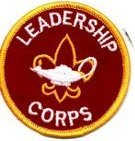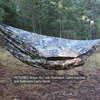Advancement Resources
Scouting ranks, merit bades, and the advancement programs
2443 topics in this forum
-
- 24 replies
- 3.2k views
-
- 5 replies
- 1.2k views
-
- 67 replies
- 11k views
-
- 21 replies
- 3.6k views
-
- 6 replies
- 1.7k views
-
- 2 replies
- 1k views
-
- 0 replies
- 860 views
-
- 30 replies
- 6.4k views
-
- 16 replies
- 5.2k views
-
- 56 replies
- 8.5k views
-
- 22 replies
- 7.7k views
-
- 7 replies
- 1.3k views
-
- 11 replies
- 12.6k views
-
- 31 replies
- 5k views
-
- 7 replies
- 1.3k views








